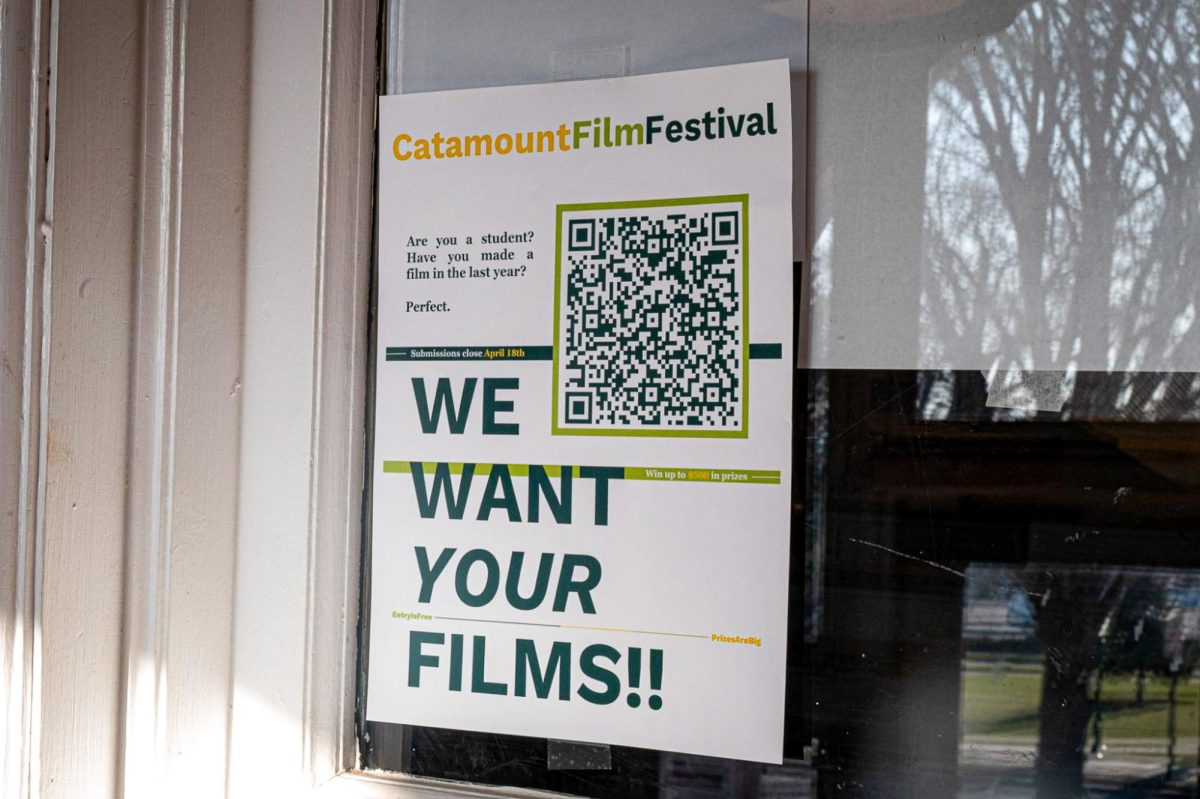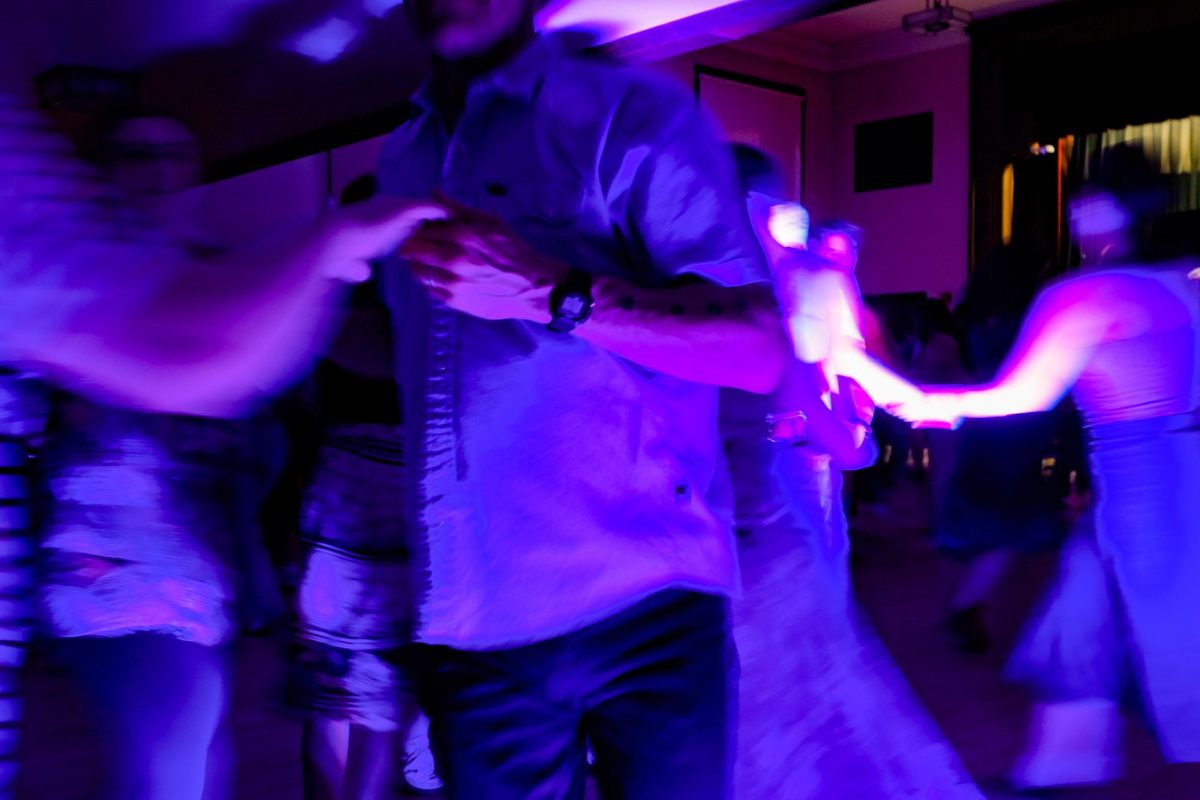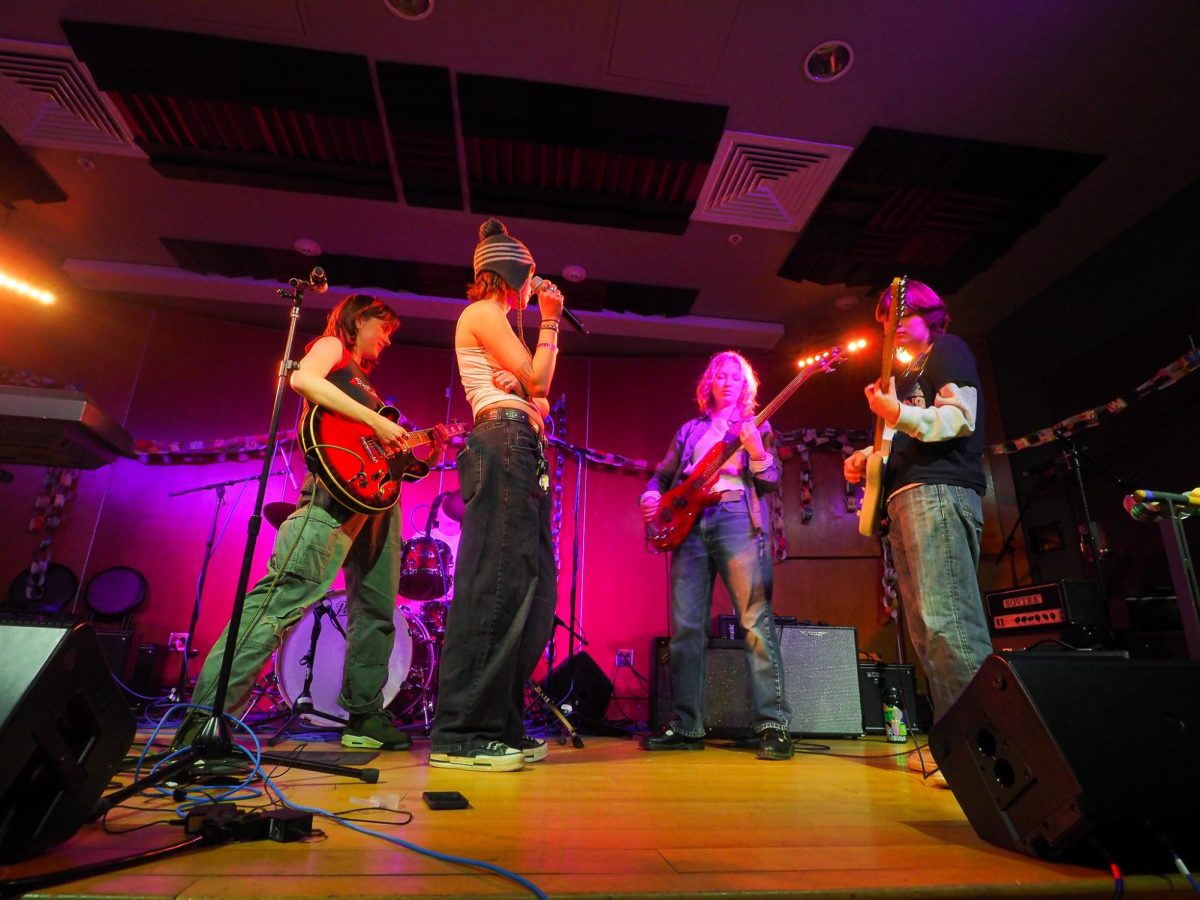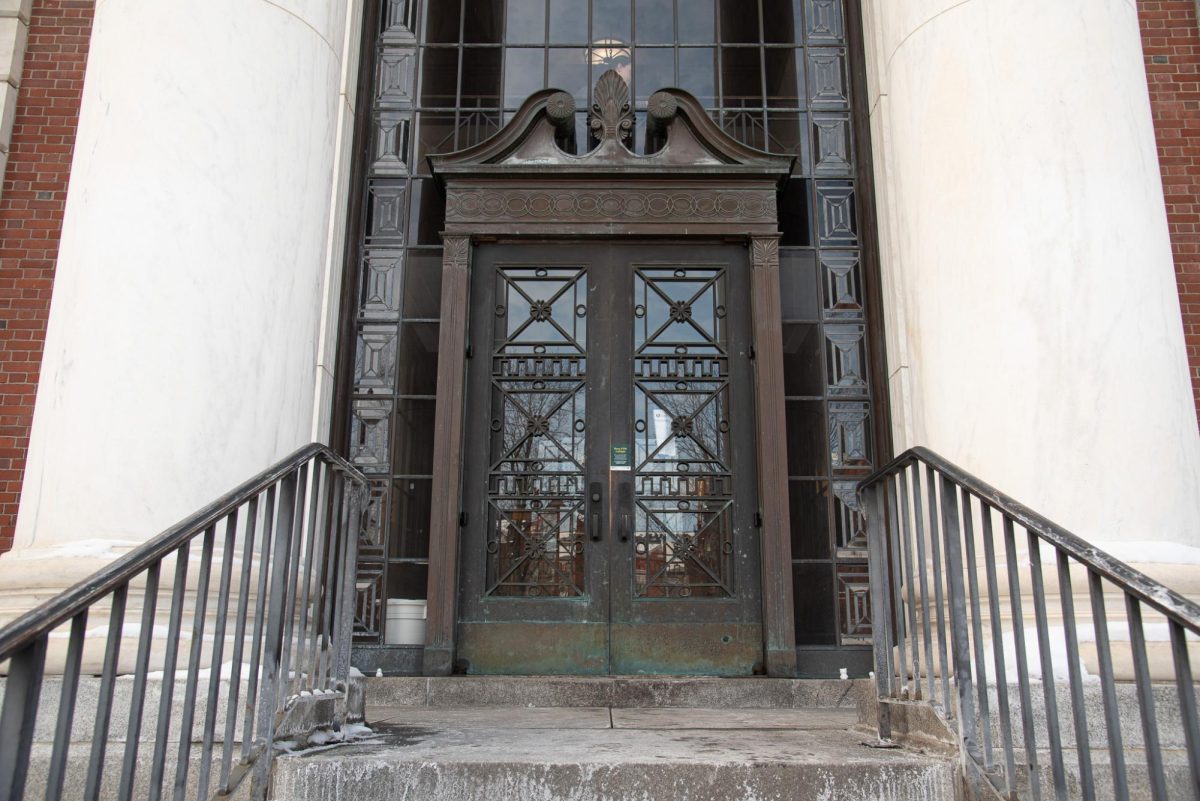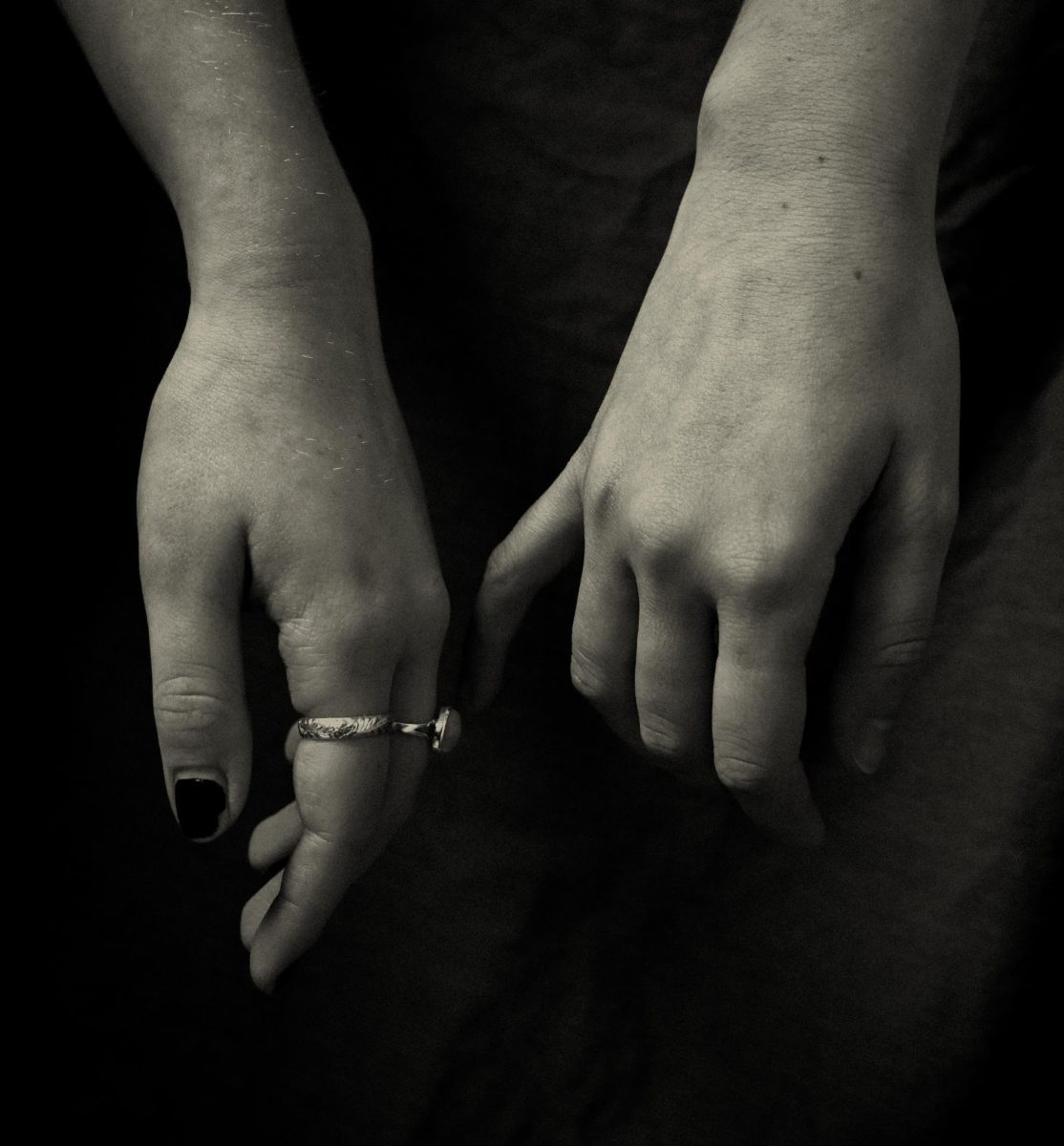Converting “hippiecrites”: When UVM alumna and eco-entrepreneur Anna Borofsky meets jam fans whose actions don’t meet their ideals, she doesn’t get mad, she gets cleaning. (Photo courtesy of Clean Vibes.)
Anna Borofsky is standing in the middle of a sea of trash at a former air force base in northern Maine. The 1999 UVM graduate is about to spend the next seven hours orchestrating the cleanup of 700 tons of garbage produced by 70,000 Phish fans.
It’s moments like these that the co-owner of Clean Vibes, an environmentally conscious concert-cleanup company in Portsmouth, N.H, wonders how her profession relates to her undergraduate thesis on environmental education. If her ecological mission was having such an impact on young concertgoers, why was she knee-deep in enough refuse to fill a city dump?
After a brief scan around the former Loring Air Force Base-turned massive receptacle, and the 70 people she’s hired to clean it up, Borofsky realizes that not only is she educating her employees, who include UVM students and alumni, but also the people who responded to her company’s contest that resulted in the recycling of 100 tons of waste. Other contests and promotions seem to be having a positive effect as well.
Borofsky is subtly educating a young generation of Americans in a setting that may have a more lasting impact than more formal methods of teaching about environmental issues.
“Fans of jam bands like Phish and the Dead tend to think of themselves as environmentally conscious, but their actions don’t always show it,” says Borofsky. “We like to call them ‘hippiecrites.’ But the fact that a lot fans are responding to our raffles and other ideas shows that they’re starting to respond, and that they share the same values as us. I think we’re educating people in sort of an alternative way. Even though I feel like a camp counselor sometimes, I’m getting the opportunity to educate an entire popular culture through music.”
More Than Trash Talk
Borofsky and her partner Evanglyn Morse devised a program that gives fans who turn in five bags of trash a chance to win autographed CD’s and other band-related items. Green bags are distributed for recyclable items and clear bags for trash. Handing in five bags gets fans an “I Help Keep The Scene Clean” t-shirt and a raffle ticket for the more coveted items. Borofsky has other ideas to promote recycling, such as a food waste diversion program that would separate pre-consumer food waste from trash produced by the 100 or so food vendors that work major outdoor festivals.
The response has grown, resulting in more cleaning up by fans, and an easier workload for Borofsky’s crew, which has also become more efficient. This combination has resulted in Clean Vibes being able to cut its cleanup time in half. It took the company 14 days to clean up Phish’s Great Went Festival in Limestone in 1998, but only half that time at the 2003 It Festival at the same location.
At the latter concert, Clean Vibes used more than 60,000 trash bags and 1,200 pairs of latex gloves to collect and haul away 300 tons of garbage. More than six tons of plastic and aluminum, and enough glass to fill a 150-yard dumpster, were also collected for recycling.
Cleaning up in the wake of four days of camping and partying by Neil Young fans isn’t what Borofsky envisioned herself doing as an undergraduate in the environmental studies program. Although her commitment to environmental education has never waned, it veered slightly off course when she started working for Clean Vibes in 1997, then a division within Boston-based Great Northeast Productions, as a cleanup crew member. After working at such major Phish festivals as Clifford Ball, Great Went, and Lemonwheel, Borofsky was given the opportunity to make an amicable break from Great Northeast and run Clean Vibes with Morse, an environmental conservation graduate of the University of New Hampshire.
The Business of the Environment
Borofsky credits some of her choice as a professional to the flexibility and self-designed nature of UVM’s environmental program, which she says allowed her to explore different fields of interest. Three students completed a research paper on Borofsky and her company and a number of others students and alums have worked for her. As for the business aspects of her chosen profession, that has been learned though trial and error.
“We knew going into it that it would be a challenge from a business standpoint,” Borofsky says. “Every step is trial and error. It can be scary because we’re very dependent on a very unstable market. If one festival goes wrong, it hurts the entire market. I have to be careful because I can get caught up in the business-side of it and forget why I got into this in the first place.”
Clean Vibes continues to clean up about a dozen of the world’s largest concert events each summer, including Phish’s Camp Oswego festival and the band’s four-day camp-out at Big Cypress Seminole Indian Reservation, which drew 80,000 fans to the heart of the Florida Everglades. She’s considering expanding into NASCAR events and festivals with different fan bases such as Ozzfest, but she realizes she’s close to reaching the limits of what she can handle.
“I don’t see myself running around concert fields cleaning when I’m 40,” Borofsky says. “But there will always be a need for it. Americans are messy everywhere – no doubt about it. I feel fortunate to be able to employ and support over 100 people each summer. It provides an atmosphere where they can meet people with similar interests and talk about their environmental beliefs.”






